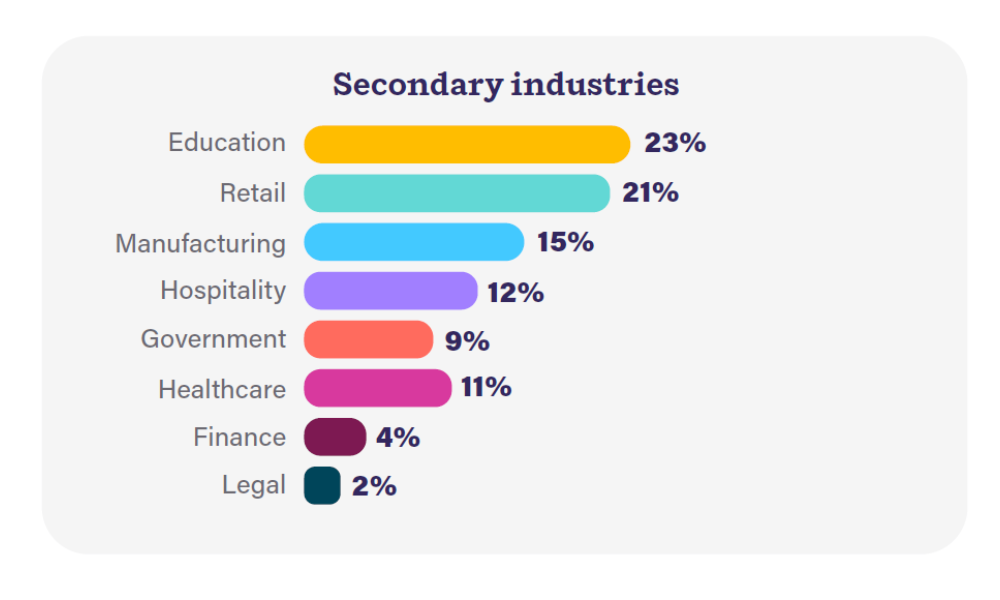
But report highlights positive shift in financial sentiments among shift workers

Nearly a quarter of shift workers in Australia are working multiple jobs to boost their finances, according to a new report.
Deputy's State of Hourly Work Survey, which polled 1,434 Australians, found that 22% engage in poly-employment, or working multiple jobs, to bring in additional income.
Among multiple jobholders, 68% of them are working in the same industry, while 32% are juggling jobs across different industries, according to the report.

Source: Deputy's State of Hourly Work Survey
"Shift workers are making current economic challenges work for them by coupling together multiple income streams as a means to make ends meet," said Emma Seymour, chief financial officer of Deputy, in a statement.
The report said that a multiple job holder staying in the same industry is likely aiming for consistency in their professional experience, and they might also find it easier to leverage their skills.
Those who are crossing industries are likely to desire career diversification or the need to explore various fields to meet financial or career goals.
"This diversification could be driven by various factors, such as the desire for varied work experiences, income maximisation, or finding opportunities in emerging industries," the report stated.
However, the report also found a positive shift in financial sentiments for some shift workers. The percentage of workers who struggle to meet their living expenses with their current pay declined to 15% in 2024 from 22%.
The percentage of employees who are able to cover their expenses but do not have any money left over also went down to 49% from 53%.
On the other hand, employees who can cover their living expenses and still have money to spare went up to 35% in 2024 from 25% in 2023.
"This suggests that more workers are moving from just getting by to having more financial stability," the report said.
The findings come as previous reports indicated that finance is the top stressor for employees in other parts of the world, as employers are urged to implement measures to address these worries.